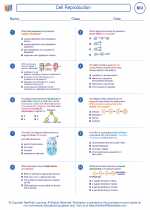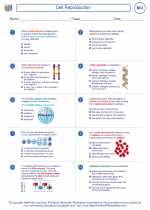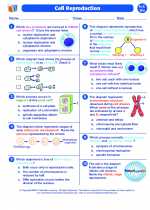RNA: Structure and Function
RNA, or ribonucleic acid, is a molecule that plays a crucial role in various biological processes. It is involved in translating the genetic information from DNA into proteins, as well as in other cellular functions.
Structure of RNA
RNA is composed of a single strand of nucleotides. Each nucleotide consists of a sugar molecule (ribose), a phosphate group, and a nitrogenous base. The nitrogenous bases in RNA are adenine (A), cytosine (C), guanine (G), and uracil (U). Unlike DNA, RNA contains uracil instead of thymine.
Types of RNA
There are several types of RNA, each with specific functions:
- Messenger RNA (mRNA): Carries the genetic information from DNA to the ribosomes for protein synthesis.
- Transfer RNA (tRNA): Helps in the actual transfer of amino acids to the ribosomes during protein synthesis.
- Ribosomal RNA (rRNA): Forms a major component of ribosomes, where protein synthesis occurs.
- MicroRNA (miRNA) and Small Interfering RNA (siRNA): Regulate gene expression by affecting the stability and translation of mRNAs.
Functions of RNA
RNA performs a variety of essential functions in the cell:
- Protein Synthesis: mRNA carries the genetic code from DNA to the ribosomes, where tRNA delivers the corresponding amino acids, and rRNA helps in the formation of peptide bonds during protein synthesis.
- Gene Regulation: Certain types of RNA, such as miRNA and siRNA, regulate gene expression by targeting specific mRNAs for degradation or by inhibiting their translation.
- Enzymatic Activities: Some types of RNA, known as ribozymes, exhibit enzymatic activities and can catalyze biochemical reactions.
- Immunity and Defense: RNA molecules play a role in the immune response and defense against viral infections through mechanisms such as RNA interference.
Study Guide for RNA
Here are some key points to focus on when studying RNA:
- Understand the structure of RNA, including the components of a nucleotide and the differences between RNA and DNA.
- Learn about the different types of RNA and their specific functions in the cell.
- Explore the process of protein synthesis and the roles of mRNA, tRNA, and rRNA in this process.
- Examine the mechanisms of gene regulation by miRNA and siRNA, and their impact on protein expression.
- Consider the diverse functions of RNA beyond protein synthesis, such as its role in enzymatic activities and immune responses.
By mastering these concepts, you will gain a comprehensive understanding of the structure and function of RNA and its significance in cellular processes.
[Rna] Related Worksheets and Study Guides:
.◂Biology Worksheets and Study Guides High School. Cell Reproduction

 Worksheet/Answer key
Worksheet/Answer key
 Worksheet/Answer key
Worksheet/Answer key
 Worksheet/Answer key
Worksheet/Answer key
